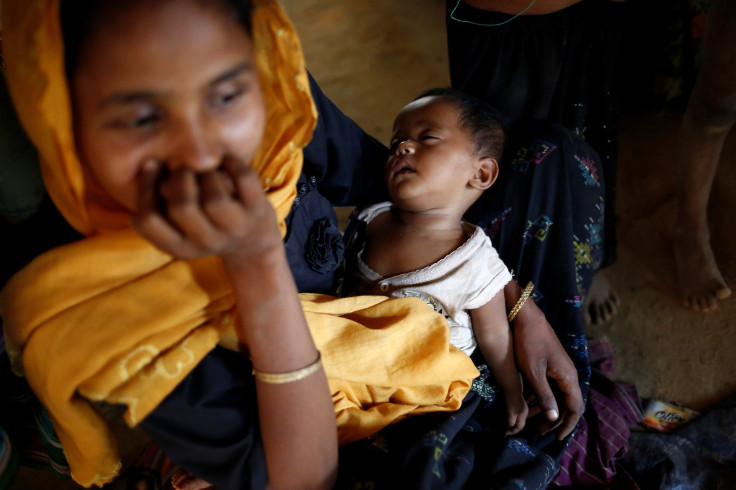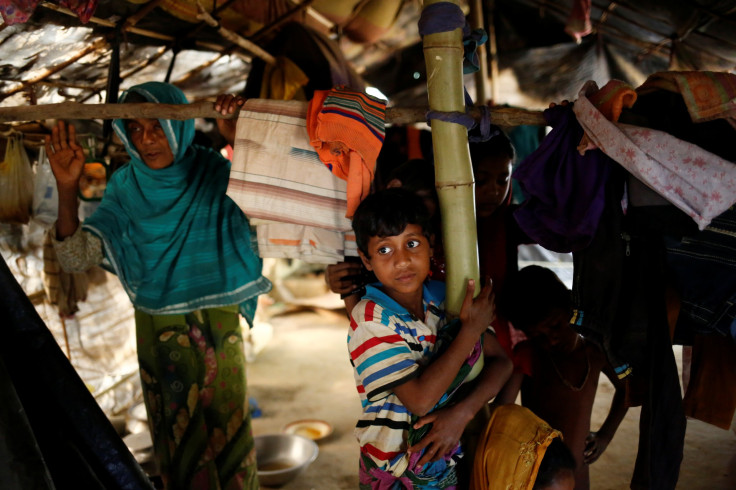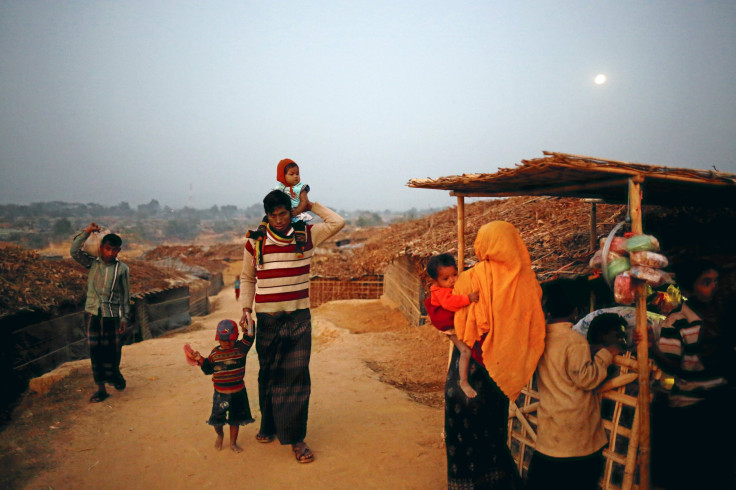Are Refugees Safe? Rohingya Muslims From Myanmar Face Gang Rape, Arson And Murder After Fleeing Ethnic Cleansing

The harsh conditions and violent fates for persecuted Rohingya Muslims living in refuge throughout makeshift camps and refugee centers in Bangladesh have grown even more dire. Nearly 70,000 people have fled to the nation to escape the ongoing conflict in Myanmar, the United Nations reported Wednesday.
Rohingya Muslims, an embattled group facing violent clashes with the ethnic Rakhine Buddhists and "clearance operations" conducted by the Burmese army in the Buddhist-majority nation of Myanmar, have been unable to find safety in the neighboring Southeast Asian nation. Swelling populations in the region’s already-overcrowded refugee camps have spurred crime, violence and danger for the virtually stateless Muslim group.

Reports of sexual abuse, including gang rapes and other violence across Myanmar’s refugee camps, have continued to emerge. Activist organizations and international groups were struggling to address the developing human rights crisis. Meanwhile, United Nations Special Rapporteur Yanghee Lee visited multiple Rohingya camps in Teknaf, Myanmar, on Tuesday, the second consecutive day she visited the camps during her four-day tour of the region. The human rights envoy also recently met with Myanmar officials during a 12-day trip to the country, whose government has denied any military involvement of torture, sexual abuse and arson.
More than one million Rohingya Muslims were living in a state of apartheid-like oppression in Myanmar, unable to register birth certificates for newborns, vote or live safely in their home communities. Myanmar military operations determined to eradicate the Muslim group have reportedly killed "thousands" of Rohingya people.

The persecution of Muslim refugees in Myanmar and across the globe has been repeatedly condemned by international leaders and countless activists, calling for an end to the violence. Pope Francis spoke out against the persecution Rohingya Muslims have faced in Southeast Asia a statement released Feb. 8, saying the group was facing severe atrocities "simply because they want to live their culture and their Muslim faith."
© Copyright IBTimes 2024. All rights reserved.





















